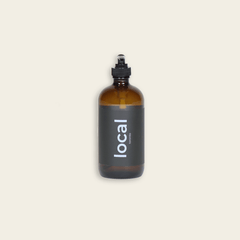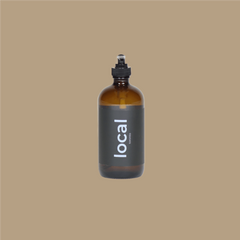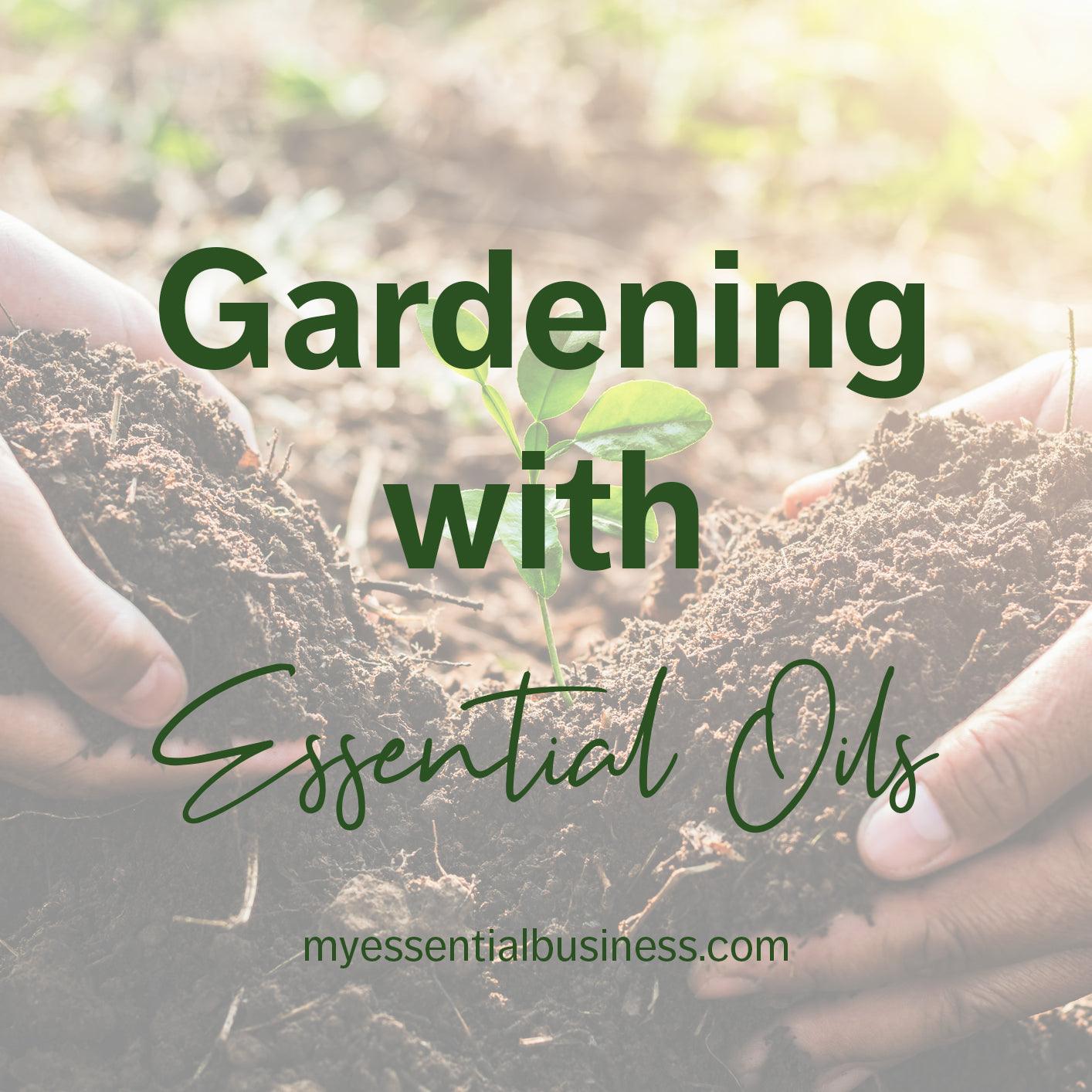How to Garden with Essential Oils
With spring finally here and summer ahead, you are probably anxious to get your hands dirty in the garden preparing for the season. With all of the hard work that goes into making your garden beautiful, nothing is more frustrating than watching the fruits of your labour being destroyed by pests as they take over.
This week we want to share our favourite all natural garden sprays so you can keep all those bugs at bay. When growing delicious fruits and vegetables the last thing you want to use is harmful chemicals that can be hazardous to your health and the environment. Growing your own organic food without pesticides, herbicides, or fungicides really is the way to go and essential oils will allow you to do just that. Essential oils work in a similar way and because they are far more concentrated than the herbs and plants themselves it makes them far more effective in warding off unwanted guests.
TOP ESSENTIAL OILS FOR THE GARDEN
ESSENTIAL OILS THAT DETER INSECTS
- Ants: Peppermint, spearmint, wild orange, cedarwood
- Aphids: Cedarwood, peppermint, spearmint, wild orange, cedarwood
- Beetles: Peppermint, thyme, cedarwood, wild orange
- Caterpillars: Peppermint, spearmint, cedarwood, wild orange
- Chiggers: Lavender, lemongrass, sage, thyme, cedarwood, orange
- Cutworm: Thyme, cedarwood, wild orange
- Fleas: Lavender, lemongrass, peppermint, cedarwood, wild orange
- Flies: Lavender, peppermint, rosemary, sage, cedarwood, wild orange
- Gnats: Patchouli, spearmint, orange, cedarwood, peppermint
- Mosquitoes: Lavender, lemongrass, wild orange, cedarwood, peppermint, lemon, eucalyptus, thyme, cinnamon
- Head Lice: Lavender, tea tree, geranium, spearmint, peppermint, rosemary
- Plant Lice: Peppermint, spearmint, cedarwood, wild orange
- Moths: Cedarwood, lavender, peppermint, spearmint, wild orange
- Roaches: Cedarwood, eucalyptus, cinnamon, thyme, wild orange
- Slugs: Cedarwood, peppermint, wild orange
- Snails: Cedarwood, patchouli, wild orange
- Spiders: Peppermint, spearmint, citrus
- Ticks: Lavender, lemongrass, wild orange, sage, thyme, tea tree
- Weevils: Cedarwood, patchouli, sandalwood, orange
MULTI-PURPOSE GARDEN SPRAY RECIPE
Use this spray bottle recipe around your garden to deter pests and discourage the growth of fungus
In an 8 oz spray bottle, combine:
10 drops Cedarwood
10 drops Peppermint
10 drops Arborvitae
10 drops Wild Orange
10 drops Tea Tree
A squirt of liquid castile soap
Fill the rest of the spray bottle with water
You can purchase raw materials directly from our website by clicking here.
BIRDS AND THE BEES SPRAY BOTTLE RECIPE
Use this spray around your garden to attract pollinators to the area. Having pollinators in your garden (such as bees and butterflies) is important as it helps produce seeds allowing the plant to reproduce. The pollinators also leave getting the right nutrients they need to survive.
In an 8 oz spray bottle, combine:
10 drops Lavender
10 drops Basil
10 drops Lemongrass
Fill the rest of the spray bottle with water

BUG OFF SPRAY
Use this spray on your plants to deter insects such as spiders and ants
In an 8 oz spray bottle, combine:
10 drops Peppermint
10 drops Eucalyptus
10 drops Tea Tree
10 drops Lemongrass
Fill the rest with water
Vinyl labels can be purchased by clicking here.
PEPPERMINT BALLS
Soak a few cotton balls in peppermint essential oil. Place the cotton balls around the perimeter of your garden to ward off unwanted insects.
APPLE CIDER VINEGAR
You can use apple cider vinegar to trap aphids and fruit flies! Fill a small bowl or mason jar halfway with ACV, cover the top with saran wrap and poke small holes in it. The aphids and fruit flies will be lured into it and drown in the vinegar.
DIATOMACEOUS EARTH (food-grade)
Diatomaceous earth is made from fossilized water plants and the remains of algae-like plants called diatoms. The diatoms are ground up to make a fine powder that makes a great insecticide. Diatomaceous earth helps deter garden pests by getting into their exoskeleton and drying them out. Wear a mask while sprinkling this around your garden area.
HELPFUL TIPS:
- Always water your garden or use your spray bottle recipes at the beginning or end of the day, never in hot direct sunlight.
- Keep in mind that some essential oils may also harm bugs that may be beneficial to your garden
- Feed your plants regularly
- Add a layer of mulch around your plants to reduce the growth of weeds and loss of moisture
- Growing plants like onion, garlic, and chives will also help keep pests away
- Keep an inventory of your garden so you know what you planted and where
We hope you found this helpful! Visit myessentialbusiness.com for essential oil supplies, bottles, containers, diffusers, and more.
DISCLAIMER: Make sure you are using the safest essential oils available to you. We use Certified Pure Therapeutic Grade. All information mentioned in this blog post has not been evaluated by Health Canada or the FDA and is not intended to diagnose, treat, cure, or prevent any disease.





Leave a comment